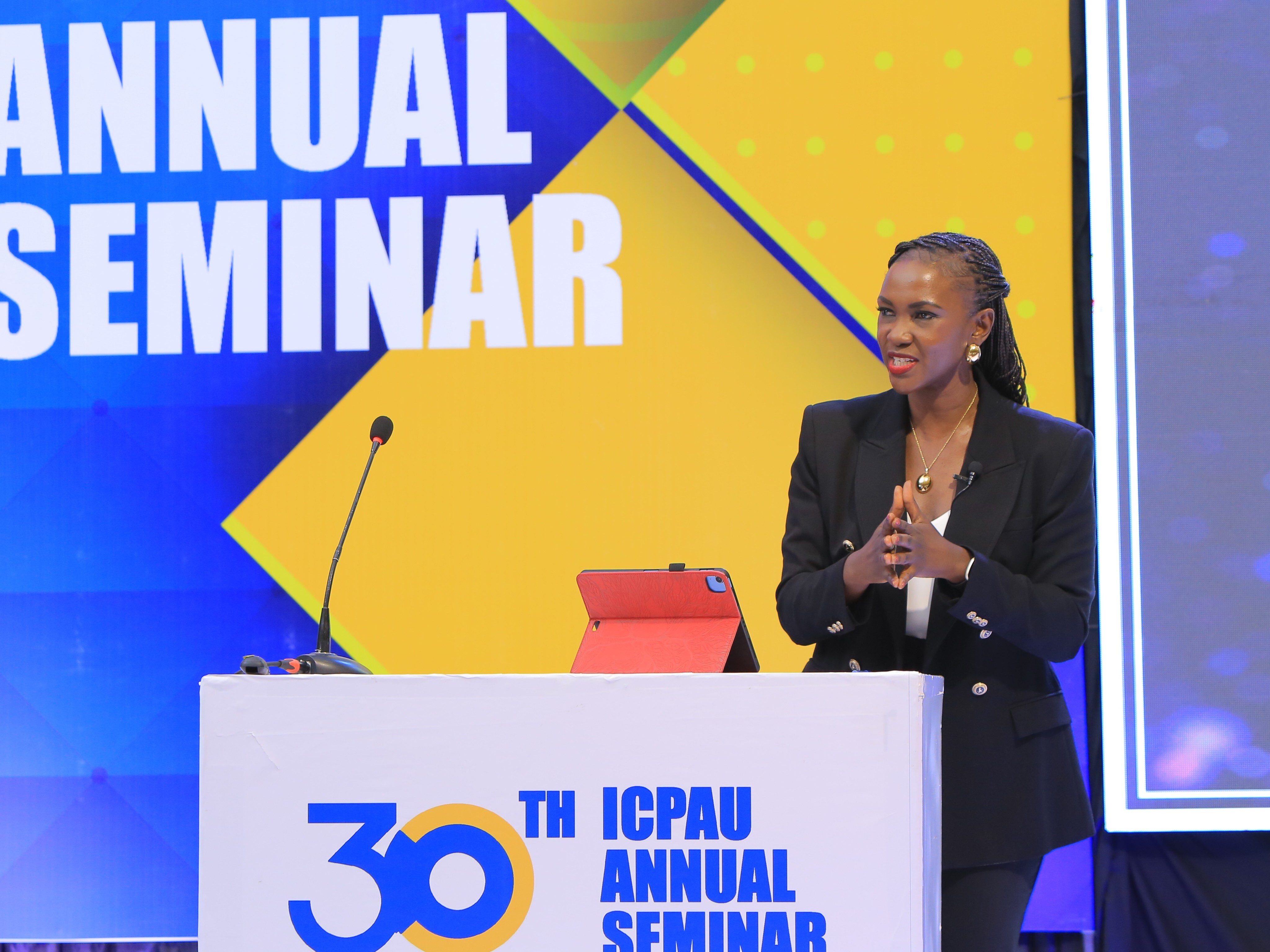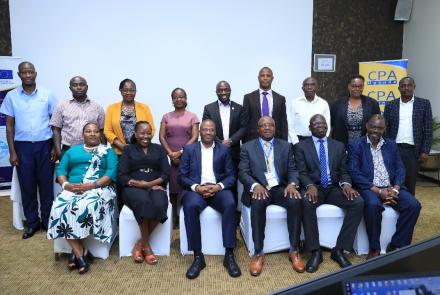By Caroline Nassuuna
Communications Officer
Cathy Adengo, the Head of Sustainability, ESG & CSI at Stanbic Bank Uganda has urged organisations to embrace Environmental, Social and Governance (ESG) compliance to drive profitability.
She noted that organisations like Stanbic Uganda Holdings Limited (SUHL), which have consistently excelled in sustainability reporting as verified by the Financial Reporting Awards Committee of the Institute of Certified Public Accountants of Uganda (ICPAU) are also some of the most profitable organisations in the country.
SUHL has scooped several sustainability reporting accolades from ICPAU, including winning the overall sustainability reporting award more than four times. Similarly, 2024 financial performance results placed Stanbic Bank ahead of all banks in terms of profitability.
Adengo noted sustainability practices like a shift from paper to electronic publications, which can significantly reduce printing costs, thereby preserving the environment, while positively impacting the bottom line.
She was delivering a presentation on Corporate Sustainability Reporting: Driving Transparency in ESG at the 30th Annual Seminar of the Institute of Certified Public Accountants of Uganda (ICPAU) at the Imperia Resort Beach Hotel.
She noted that today, businesses are judged not just by the money they make, but by how responsibly they operate. Investors, regulators, and communities want to know how responsibly organisations are managing resources, treating people, and governing themselves.
“ESG is the new license to operate, and it involves demonstrating that a business is creating value responsibly, while protecting both the environment and society,” noted Adengo.
Adengo explained the three pillars of ESG: environmental, which involves tackling climate change, managing natural resources, reducing pollution, and minimising waste; social, which has to do with investing in people, upholding ethical labour standards, and promoting inclusion, and ; governance; ensuring integrity, accountability, and ethical leadership.
“In this era, when companies neglect any of the ESG pillars, they undermine both their credibility and their competitiveness,” remarked Adengo.
She emphasised that corporate sustainability reporting is the engine of transparency. It transforms vague commitments into measurable outcomes and opens a dialogue with stakeholders.
“Sustainability reporting is not about showcasing only your successes; it’s about telling the entire story, the progress, the risks, and even the setbacks,” Adengo explained.
It is through transparent ESG reporting that companies build trust, enable informed decision-making, strengthen risk management, and encourage continuous improvement. Adengo stressed the importance of African companies engaging fully with global sustainability frameworks.
She pointed out global frameworks such as the International Sustainability Standards Board (ISSB) standards (IFRS S1 and S2) as tools that help companies report consistently, attract investment, and compete globally.
“If we don’t speak the global language of ESG, our voice will be missing in shaping the standards that affect us,” Adengo cautioned.
Using Stanbic Uganda as an example, she illustrated how ESG reporting can shift from compliance to cultural transformation.
“When you start measuring non-financial impacts, sustainability moves from being a nice-to-have concept to a core business function, which aligns the entire organisation around a common purpose,” remarked Adengo.
She added that transparency is no longer optional; it is the currency of trust, and ESG reporting provides a framework for businesses to show not only what they are achieving, but also how they are holding themselves accountable. ESG is not just about managing risks. It is about redefining success in a way that is sustainable, inclusive, and credible.
The 30th ICPAU Annual seminar is happening between 3 – 5 September 2025 under the theme, Positioning Professionals for Sustainable Impact. The conference is organised by the Institute of Certified Public Accountants of Uganda (ICPAU) to provide an immersive learning experience for accountants, away from the hustle of everyday work.
The event is organised by ICPAU in partnership with Uganda Electricity Distribution Company Limited, Deposit Protection Fund, KPMG, Bank of Uganda, National Social Security Fund, National Identification and Registration Authority, PKF, Standard Chartered Bank, Uganda Communications Commission, NCBA Bank, Financial Intelligence Authority, Centenary Bank, Civil Aviation Authority, Uganda National Oil Company, Stanbic Bank, KCCA, Wazalendo SACCO and Wazalendo Investments, East Africa Development Bank, among other partners.





